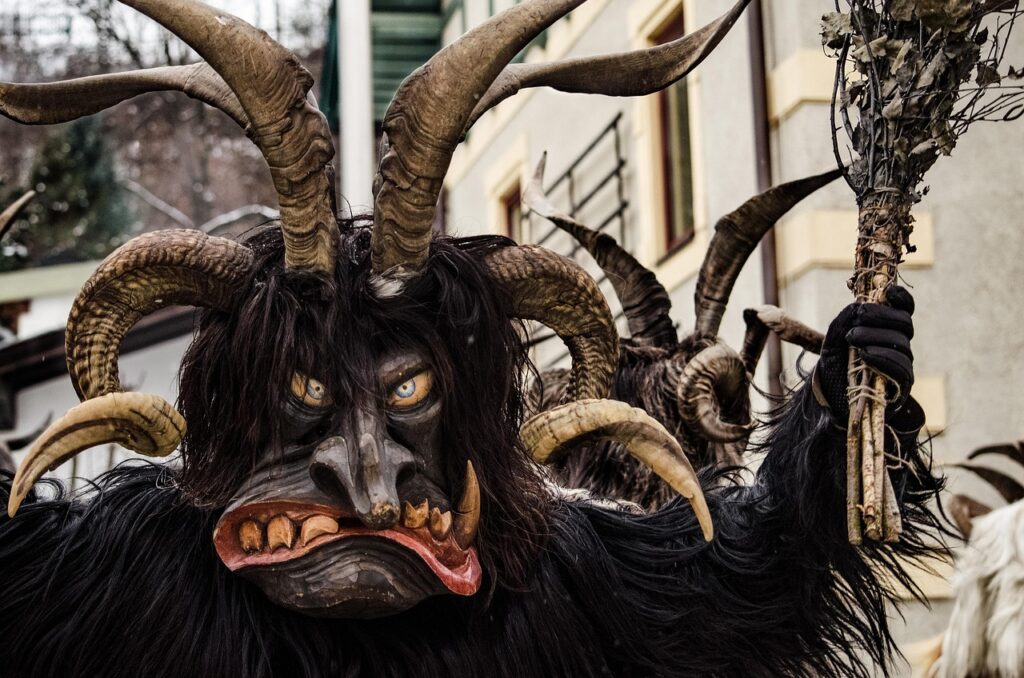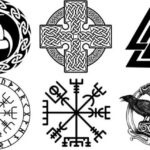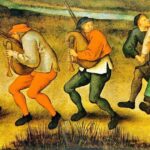
Germany has a long and fascinating history of superstitions and folklore, with beliefs that have been passed down for generations. From ancient pagan customs to medieval fears of witches and spirits, German superstitions reflect both the nation’s cultural heritage and its deep-rooted connection to nature and the supernatural. Some of these beliefs have faded with time, while others still influence German society today. In this article, we explore the most unusual and intriguing German superstitions, their origins, and their significance in the modern world.
The Origins of German Superstitions
Many German superstitions date back to pagan traditions and early Christianity, evolving over centuries through folklore and oral storytelling. These beliefs often served practical purposes, such as protecting individuals from misfortune or explaining natural phenomena.
- Pagan Influence: Many superstitions stem from Germanic tribes, who worshiped nature spirits and gods. Forests, rivers, and mountains were believed to house supernatural beings.
- Medieval Superstitions: The Middle Ages saw an increase in fear-based superstitions, particularly surrounding witches, demons, and bad omens.
- Christian Adaptations: As Christianity spread across Germany, many pagan beliefs merged with religious traditions, creating a blend of spiritual and supernatural elements in German folklore.
Common German Superstitions and Their Meanings
1. Knocking on Wood (“Auf Holz klopfen”)
This widely recognized superstition has deep roots in Germanic folklore. It was believed that trees housed protective spirits, and knocking on wood could summon good luck and ward off evil spirits.
2. The Curse of Walking Under a Ladder
While this superstition exists in many cultures, Germans believe that walking under a ladder is particularly unlucky because ladders were associated with gallows and executions in medieval times.
3. Friday the 13th (“Freitag der 13.”)
In Germany, Friday the 13th is seen as an unlucky day, stemming from a mixture of Norse mythology and Christian beliefs surrounding the Last Supper and the betrayal of Jesus.
4. Spilled Salt Brings Bad Luck
Spilling salt is said to bring bad luck unless a person throws a pinch over their left shoulder, a belief originating from medieval Germany where salt was considered valuable and sacred.
5. Never Wish Someone a Happy Birthday Early
One of the strongest superstitions in Germany is that wishing someone a happy birthday before their actual birthday brings bad luck. Germans are very strict about this, and many refuse to celebrate even a day early.
6. Breaking a Mirror Brings Seven Years of Bad Luck
This superstition is rooted in the belief that a mirror reflects the soul. Breaking a mirror was thought to damage one’s spirit, requiring seven years to heal.
7. Chimney Sweeps Bring Good Luck
On New Year’s Eve, Germans believe that seeing a chimney sweep brings good fortune for the year ahead. Some even carry small chimney sweep figurines as lucky charms.
8. Lucky and Unlucky Numbers
- Lucky Number: 7 is considered a lucky number in Germany, often associated with prosperity and good fortune.
- Unlucky Number: 13 is widely feared, to the extent that some buildings skip labeling a 13th floor.
9. Owls as a Bad Omen
While owls symbolize wisdom in many cultures, in German folklore, they were once associated with death and misfortune, particularly if one was seen during the day.
10. The “Evil Eye” (“Böser Blick”)
Germans historically feared that envious looks or curses could bring misfortune. Protective charms, like the blue eye amulet, were used to ward off the evil eye’s effects.
Modern Superstitions in Germany
While many superstitions have faded, some still hold influence today, particularly during holidays and special occasions:
- New Year’s Eve Traditions: Germans engage in fortune-telling rituals, such as “Bleigießen,” where molten lead is poured into water to predict the future.
- Wedding Superstitions: Brides often place a penny in their shoe for good luck, and couples avoid seeing each other before the ceremony.
- Sports Superstitions: Many German athletes follow lucky rituals before competitions, believing it will improve their performance.
The Influence of German Superstitions on Literature and Culture
German folklore has significantly influenced literature, theater, and film. Classic German writers such as Goethe and the Brothers Grimm incorporated many superstitions into their stories, creating timeless works like Faust and Hansel and Gretel.
Even today, German superstitions influence modern movies, books, and urban legends, keeping these age-old beliefs alive in popular culture.
German superstitions offer a fascinating glimpse into the country’s cultural and historical heritage. Whether taken seriously or simply for fun, these beliefs continue to shape traditions and everyday life in Germany.
Interested in more German folklore and traditions? Check out our other articles on:
- German Christmas Traditions
- Hidden Messages in German Fairytales
- How the Black Forest Shaped German Mythology and Culture
- The Dark Side of German History: Strange and Unusual Events
- Germany’s Pagan Past: How Ancient Germanic Tribes Lived and Worshipped
- The Brothers Grimm and Their Legacy
- Knecht Ruprecht: Exploring the Enigmatic Figure of German Christmas Tradition
- 9 German Superstitions
- The Most Haunted Places in Germany: Castles, Ghosts, and Legends
- Why Do Germans Love Garden Gnomes? – Discover the cultural roots of Germany’s love for garden gnomes, from folklore to kitsch to national pride.







